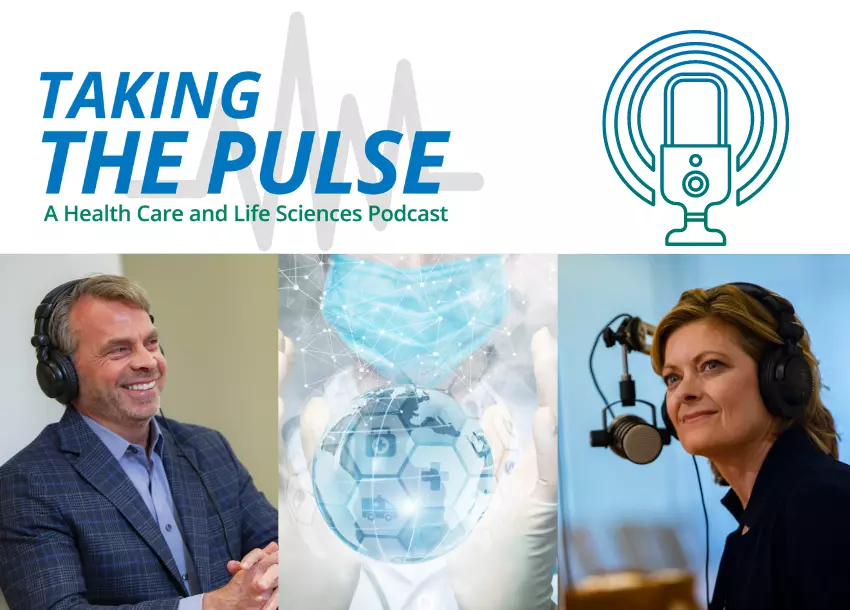Exploring EKRA: Insights from a Recent Court Decision
The Eliminating Kickbacks in Recovery Act (EKRA), 18 U.S.C. § 220, is a criminal statute that prohibits knowingly and willfully soliciting or receiving remuneration for referring patients to recovery homes, clinical treatment facilities, or laboratories, as well as paying or offering remuneration to induce referrals to, or in exchange for individuals using the services of, such facilities. Unlike the Federal Anti-Kickback Statute (AKS), 42 U.S.C. § 1320a-7b, which applies only to federal health care programs, EKRA has a broader scope, covering both public and private health benefit plans or contracts. Violations of EKRA can lead to criminal prosecution, with penalties of up to $200,000 in fines and ten years of imprisonment per violation. Despite becoming law in 2018, enforcement and guidance on EKRA have been limited. In a previous article, we discussed the brief history of EKRA enforcement and litigation. However, a recent case helps shape the contours of what does not constitute an EKRA violation.
On April 30, 2024, the United States District Court for the Eastern District of Pennsylvania resolved a contract dispute in GF Industries of Missouri, LLC v. Lehigh Valley Genomics, LLC, involving claims related to an orally modified contract. In this case, GF Industries of Missouri, LLC (GFIM), a diagnostic laboratory consultant, accused Lehigh Valley Genomics, LLC (LVG), a clinical laboratory, of breaching an orally modified contract that included bonuses based on the number of samples produced, the type of test, and the type of insurance associated with the sample (the “Bonus Agreement”). Following a five-day bench trial and extensive post-trial briefing, the court found that LVG had indeed orally modified its original contract by offering GFIM a bonus and then breached the modified contract by failing to pay GFIM the promised bonus. This promise was substantiated by text messages, emails, and internal discussions. The Bonus Agreement stipulated that GFIM would receive bonuses if the number of samples produced exceeded certain thresholds.
During the trial, LVG introduced a defense based on EKRA, arguing that the Bonus Agreement was “illegal” and “unenforceable” under EKRA. LVG suggested the modified contract violated EKRA because it called for compensating GFIM to “induce a referral of an individual” to LVG. The court characterized the dispute as essentially centering around whether a laboratory like LVG could legally compensate a consultant like GFIM on a per-sample basis. The court analyzed the legality of the bonus structure within the framework of EKRA by comparing it to the AKS’s nearly analogous language regarding inducing a referral. The court drew upon analysis from opinions published by the United States Court of Appeals for the Fifth Circuit that interpreted this inducement language in the AKS. According to the court, those opinions distinguished between an intent to induce referrals, which is a violation of the AKS, and the intent to compensate advertisers, which is permissible (i.e., simply compensating public relations professionals to disseminate materials — like literature, business cards, and cookies — to medical offices, and them subsequently receiving payment on a per-patient basis for this advertising, does not constitute a violation of the AKS). According to the court, the Fifth Circuit has also concluded that percentage-based compensation structures are not per-se unlawful and a contract’s structure alone is not sufficient evidence to produce a conviction under the AKS.
In considering whether the Bonus Agreement was “illegal” and “unenforceable” under EKRA, the court evaluated whether the Bonus Agreement was intended to induce referrals or was merely compensation for advertising and marketing services.[1] According to the court, nothing on the face of the original contract suggested that LVG engaged GFIM for anything beyond advertising and marketing services. Under the contract, GFIM was expected to perform development and marketing services, which included (i) sales and growth; (ii) education and product training; (iii) distribution management services; (iv) account management; and (v) quality initiatives. The oral contract modification did not alter the services GFIM was to provide to LVG under the contract; only the compensation method was altered. The oral contract modification provided that LVG would pay GFIM a bonus based on the number of tests produced.
The court concluded that the structure of the contract alone was not sufficient evidence to show a violation of EKRA, and the evidence in this case was not sufficient to demonstrate that LVG compensated GFIM to “induce a referral of an individual” as opposed to being compensated for advertising and marketing services. Ultimately, the court did not find that the Bonus Agreement could not be performed without violating EKRA and did not find GFIM’s modified contract void for illegality. The court ordered LVG to pay the promised bonus minus what had already been paid.
In conclusion, this case suggests that performance-based compensation structures may not necessarily violate EKRA. The court’s decision indicates that EKRA might allow bonuses based on the volume of services provided, provided the compensation is for legitimate marketing and advertising activities rather than for inducing referrals. This nuanced interpretation could influence future EKRA enforcement and provide a clearer framework for businesses navigating these regulations.
[1] In a footnote, the court contrasted an opinion from the United States Court of Appeals for the Fourth Circuit, which, the court claimed, held that contracting with salespeople who earned commissions based on the number of sales violated the AKS. The court noted that the Fourth Circuit’s decision was based on specific language in the AKS that prohibits remuneration for “arranging for or recommending purchasing” of healthcare services, a provision not found in EKRA.
About Maynard Nexsen
Maynard Nexsen is a full-service law firm of nearly 600 attorneys in 31 locations from coast to coast across the United States. Maynard Nexsen was formed in 2023 when two successful, client-centered firms combined to create a powerful national team. Maynard Nexsen’s list of clients spans a wide range of industry sectors and includes both public and private companies.








